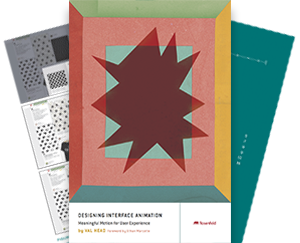The role of the senior design IC (individual contributor) is near and dear to my heart. In big part because I am one, but also because the IC career path is something I’ve been examining more closely with coworkers recently. There is so much advice out there focused on being a good design manager, but much less about how to approach leadership as a senior IC.
If you’re also a lead designer, principal designer, or aspiring to be one, these three books are ones I’ve found to be particularly useful:
Impact Players
Impact Players is all about about having meaningful impact with the work that you do, which is usually key to being a successful senior IC. Getting to levels like Senior Staff or Principal Designer requires documenting the impact you’ve had in every career ladder I’ve seen.
This book gives some helpful insights into how to be sure you’re putting your efforts into areas that will have meaningful impact. I was worried this book’s advice would boil down to suggesting the reader work harder or longer hours to make more impact, but thankfully that’s not where it goes. Instead, the book is a guide on how to focus your work efforts where they can matter most instead of trying to do everything at once and burning out.
For me, this book was also helpful for validating why some of my recent work endeavors were successful. In most organizations the criteria for being an effective senior IC is often fuzzy. It can be hard to know exactly why something worked well and what to carry forward from it.
Thanks for the feedback
Thanks for the feedback focuses on how to find the actionable parts of the feedback you receive and what to do with it, no matter the quality or style of the feedback. The advice on how to incorporate feedback into your work at the individual level feels especially useful for folks in senior IC roles. Having your own framework for how you act on the feedback you receive can go a long way towards documenting your own progress and growth.
Receiving and acting on feedback effectively is important for everyone, but I think it’s sometimes trickier to deal with well in senior IC roles. Feedback comes from many different places and different channels when you work across teams or orgs. There tends to be less structure around how that feedback is given and what, if anything, you decide to do with it.
Crucial Conversations
I’ve often seen Crucial Conversations book recommended for new managers, but I think it’s just as important for a senior IC. When your job is to influence decisions, strategy, and vision, you will end up in crucial conversations.
One of my coworkers likes to say that you have to be a troublemaker to be a successful senior IC, and there is definitely some truth to that. You have to tell people things that are difficult to hear or have other types of high-stakes conversations when influencing key decisions. And that’s all the more reason to know how to recognize these kinds of conversations and be skilled at navigating them.
